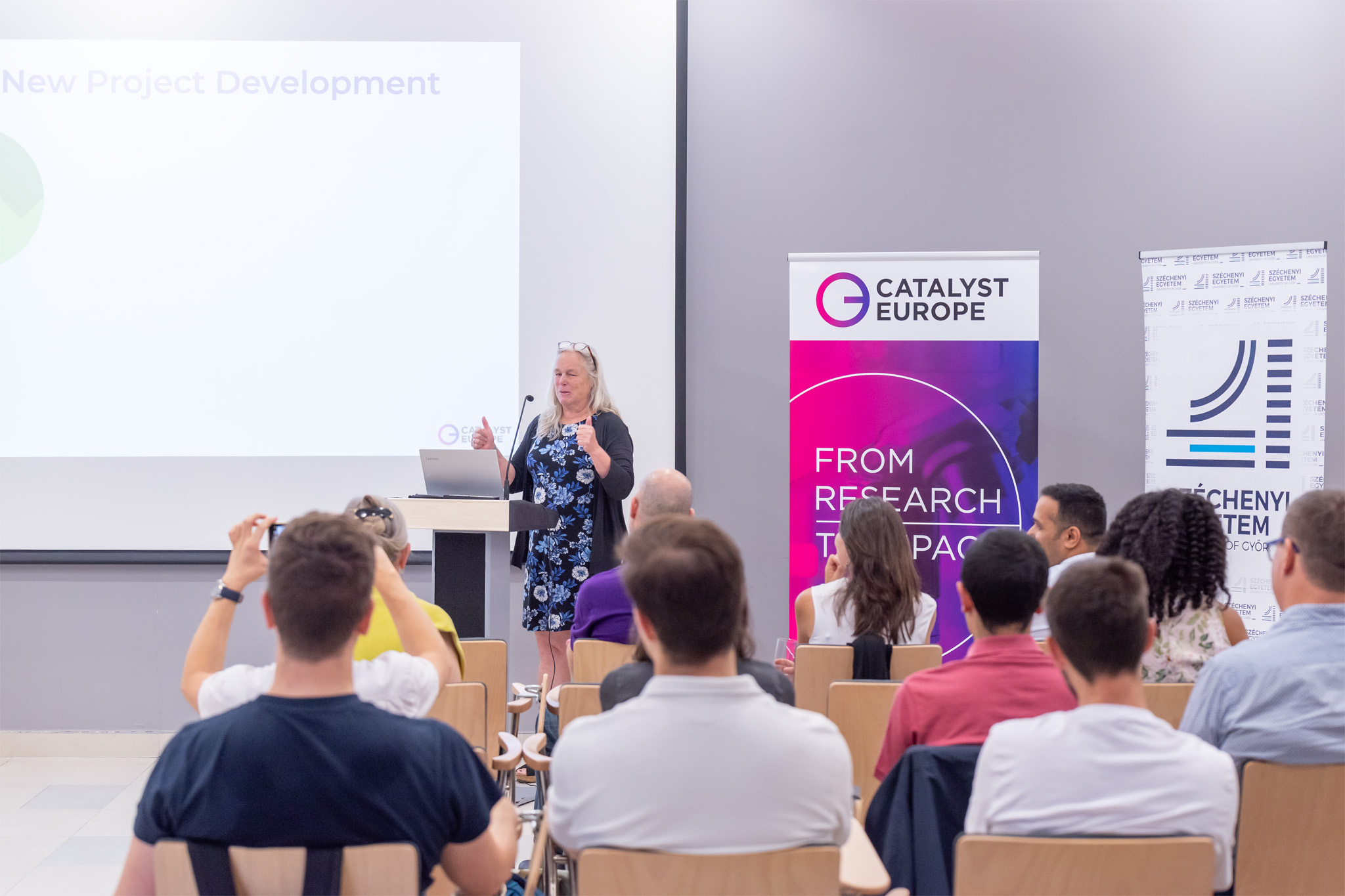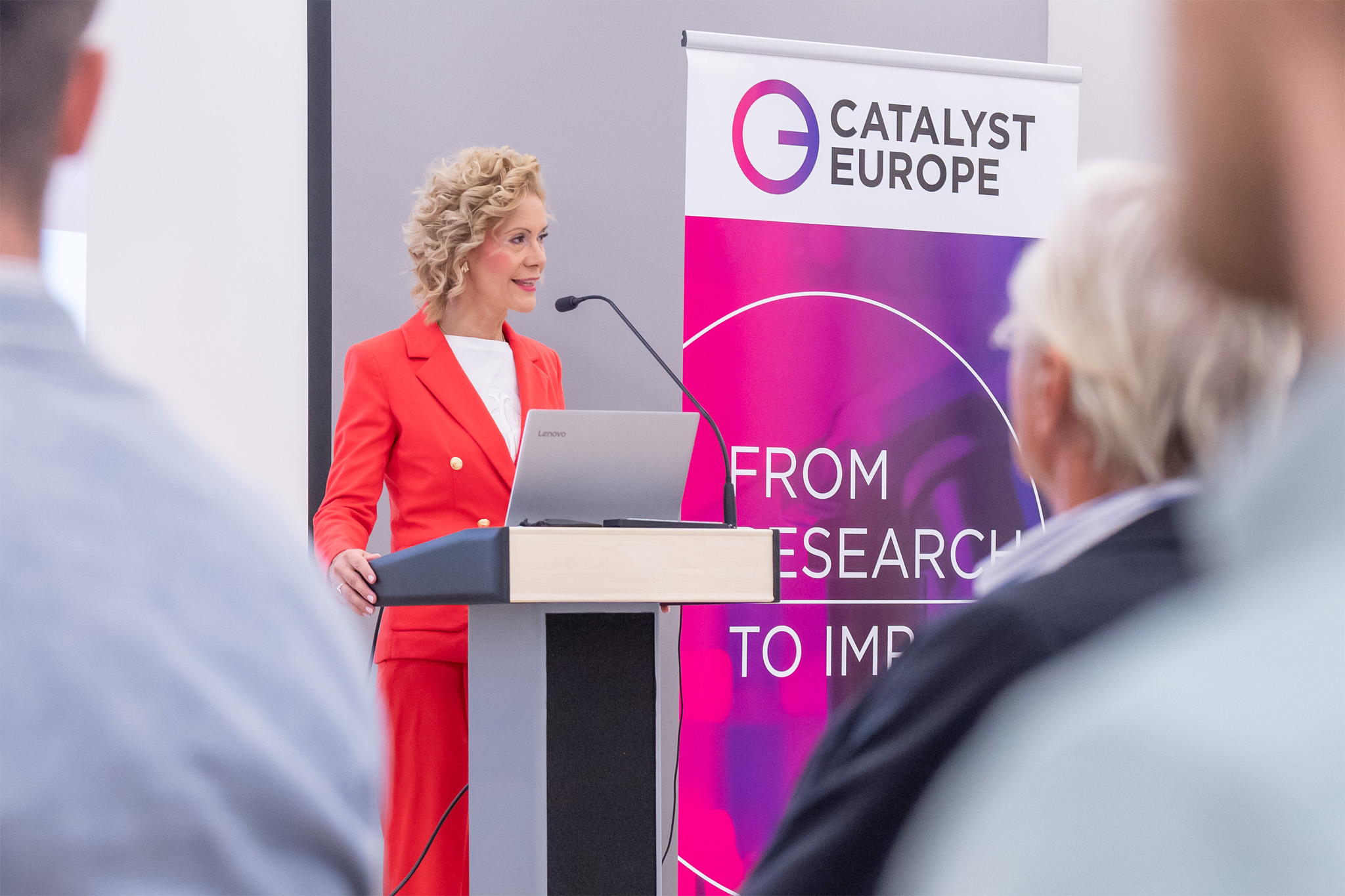SZE: Beneficial Results for Healthcare Can Emerge within the Catalyst Europe Program
Széchenyi István University in Győr is hosting an event based on the MIT (Massachusetts Institute of Technology) LinQ Catalyst methodology from 19 to 21 September, focusing on the exploration of unmet healthcare needs as the first step in developing a portfolio of research projects. The goal is to bring as many of these projects to fruition as possible, contributing to the advancement of medical science and improvement in health-related outcomes. During the event, 12 Catalyst EU fellows, scholarship recipients from seven countries, will be assisted by an equal number of mentors from the United States, Germany, Spain, Luxembourg, and Hungary.
Catalyst Europe (Catalyst EU) is an educational program based on the Catalyst program developed by MIT LinQ, aimed at generating and supporting healthcare research projects. It also incorporates a unique methodology. Its objective is to bring about a paradigm shift in research approaches to accelerate the impact of results in healthcare.
Széchenyi István University is a core partner of Catalyst Europe, in which, out of nearly 40 applicants, 12 were accepted from Spain, Italy, Luxembourg, Germany, as well as Hungary. Apart from Széchenyi University, the Hungarian institutions include Eötvös Loránd University, Semmelweis University, the University of Szeged and the University of Pécs. The key point is that various fields of science reinforce each other to lead to innovative solutions, so among them, there are not only healthcare professionals and doctors but also engineers, computer scientists, and economists. From 19 to 21 September, they will participate in a workshop held at the Győr institution, where they will not only learn from mentors from five countries but also receive assistance in forming groups to start defining research projects that, within a few years, could result in tangible developments and products aiding healthcare.
The mentors are highly esteemed experts, including Petra Barbara Krauledat, who served as the technical project leader for the development of the first FDA approved hepatitis C test. She worked closely with researchers Harvey J. Alter and Michael Houghton, who received the 2020 Nobel Prize in Medicine for their groundbreaking work in identifying the hepatitis C virus. The scholarship recipients are also being assisted by Hungarian mentors, including Professor István Rácz from Széchenyi István University's Faculty of Health and Sports Sciences, employees of Oncompass Medicine Hungary Kft., Róbert Dóczi and Barbara Vodicska as well as Associate Professor Iván Uray from the University of Debrecen.

"The Catalyst methodology seeks to change the paradigm for generating academic research projects, from those focused on knowledge generation and publications to those designed to provide real-market impact (with knowledge generation and publications being likely bi-products of the process). This approach has the potential to change the culture of academic research to one for which real world impact is among the key considerations for success. We in the Catalyst community are excited to work with Széchenyi István University in launching a new edition of Catalyst Europe and explore ways on how to leverage this method to add value to the Hungarian and other European research ecosystems. Changing how people work takes time, and it only can be achieved with a sustained and firm vision, like the one that Széchenyi István University is advocating for, which, along with other partners like GE Healthcare, have led the foundation to make the most of the Catalyst method in the region. ," stated Professor Martha Gray, Director of MIT LinQ and leader of the Catalyst program.

"For Széchenyi István University, it is of equal importance to contribute to both international-level technological research and societal well-being. This program serves both purposes by fostering results that promote the advancement of medical science," emphasized Dr. Lukács Eszter, Vice President for International Affairs and Strategic Relations at Széchenyi István University.











